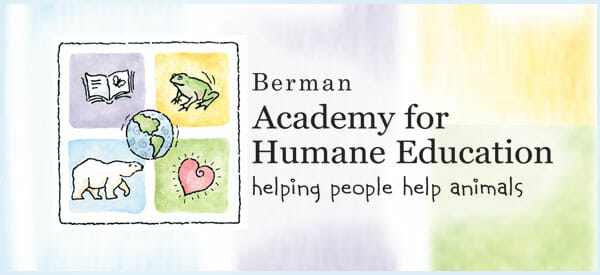About

The Detroit Zoological Society (DZS) traces its origins to a group of animals abandoned by a bankrupt circus in 1883. Citizens responded by generously giving food and money to provide for their care. The DZS was created on this foundation of helping animals in need.
More than 100 years later, the Berman Academy for Humane Education was created to help people help animals. Humane education provides people with information and tools to make knowledgeable decisions on how to walk softly and treat the Earth’s creatures gently.
The Academy is the only one of its kind in any zoo, and is the lens through which all of our education initiatives and activities are developed.
Humane Education Begins with Understanding
-
Core Beliefs
All life is connected.
No one is alone. We are constantly interacting with our environment and our environment is interacting with us.
Everyone needs a home.
All living creatures share similar basic needs – food, water, shelter and appropriate social and physical environments. A home – or habitat – provides these basic needs. Humane education helps us to appreciate the amazing natural world around us and motivates us to ensure that all animals (human and non-human) have an appropriate habitat.
The natural world is at threat.
Nature is fragile and many living creatures are at constant risk. Through humane education and appropriate practices, we can help to protect our planet and all its inhabitants.
-
Key Concepts
All animals are important.
They should be treated with respect, responsibility and compassion.
- All life is interconnected.
- All creatures have similar basic needs – food, water, shelter and appropriate social and physical environments.
- Everyone needs a home. In most instances, humans are responsible for the loss of animal habitats.
Animals have feelings.
This is an important aspect to consider, especially when contemplating an animal’s well-being.
- Animals have cognitive abilities and emotional qualities.
- They experience pain.
All animals deserve consideration and respect for their physical and emotional well-being and should not be exploited.
Circuses, roadside menageries, rodeos and many kinds of media are forms of entertainment that harm animals and humans’ understanding of them.
- Animals in these conditions have inappropriate living conditions and are subjected to significant stress.
- Animals’ basic needs, both physical and psychological, are not met in these conditions.
- Animal training methods in these situations are often inhumane.
Owners should view themselves as pet guardians and assume the responsibility to meet their companion animal’s needs.
Pets rely on us for their needs throughout their entire lives.
- Exotic animals should not be pets.
- People need to provide for the appropriate physical and psychological needs of their pets for their entire lives.
An individual has the power to make a positive difference for other creatures.
Our personal choices can make a difference.
- We need to protect and care for the animals that share our Earth.
- People should intervene if they see an animal in trouble.
Choices can be made that collectively benefit oneself, people, animals and the environment.
Our choices can have far-reaching effects. It is important to recognize the impact individuals and communities have on the Earth and its inhabitants.
We have a responsibility to consciously consider, respect, care for and protect all creatures and the environment.
Our daily activities can benefit the Earth and its inhabitants if the effort is made to consciously think through our actions.


